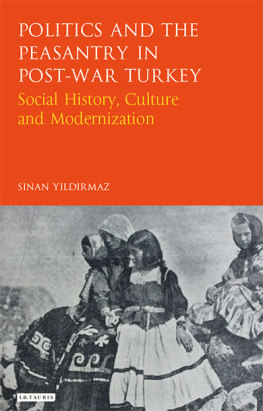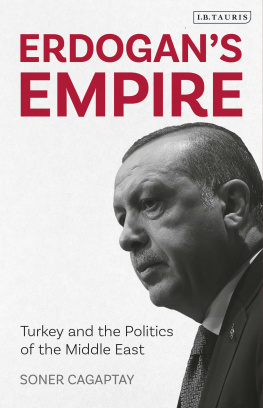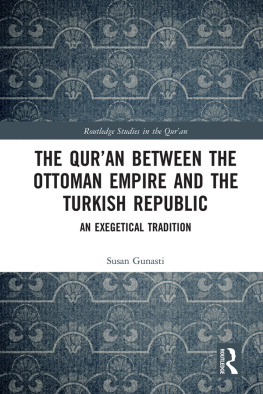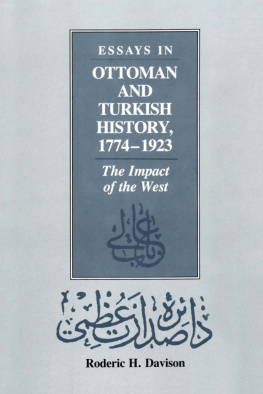Sinan Yldrmaz is Assistant Professor of History at Istanbul University and an expert on the cultural history of modern Turkey. He lives and works in Istanbul.
As World War II ended, more than 80 percent of Turkey's population continued to live in rural areas. In the decades since, however, more than 20 million men, women and children have migrated to the urban areas with far-reaching consequences. Sinan Yldrmaz provides a compelling account of the early stages of this transformation by focusing on the social, political and cultural dimensions. This is an important book for understanding Turkey today.
evket Pamuk, Professor of Economics and Economic History, Boazii University
This book describes and analyzes one of the most important structural changes Turkey went through in its recent history. In a lively, nontechnical style, Sinan Yldrmaz traces the ebb and flow of the nation's migratory process in the aftermath of World War II, and peasantry becoming an active component of politics. He describes the restructuring of peasantry and transformation of Turkey as newcomers settled in urban milieus. By detailing the forces behind the rural transformation that pushed the rural population towards cities, this fascinating study sheds light on the peasant question and highlights the importance of the exodus which inaugurated the multi-party system in Turkey. A judicious blending of history and politics makes this study the most readable exploration of the transitionary period Turkey went through from 1945 to 1960. Of special value is Yldrmaz's reference to a new kind of realistic prose called village literature which emphasizes the lots of the have-nots of a new era.
Zafer Toprak, Professor of Modern Turkish History, Ko University
This historiographical study of the Turkish peasantry greatly enhances our understanding of the social history of Turkey during an era so much neglected by historians. The book deserves particular attention for its potential for comparative discussions emanating from the Turkish experience.
M. Asm Karamerliolu, Professor of History, Boazii University
POLITICS AND
THE PEASANTRY
IN POST-WAR
TURKEY
Social History, Culture and Modernization
S INAN Y ILDIRMAZ
Published in 2017 by
I.B.Tauris & Co. Ltd
London New York
www.ibtauris.com
Copyright 2017 Sinan Yildirmaz
The right of Sinan Yildirmaz to be identified as the author of this work has been asserted by the author in accordance with the Copyright, Designs and Patents Act 1988.
All rights reserved. Except for brief quotations in a review, this book, or any part thereof, may not be reproduced, stored in or introduced into a retrieval system, or transmitted, in any form or by any means, electronic, mechanical, photocopying, recording or otherwise, without the prior written permission of the publisher.
Every attempt has been made to gain permission for the use of the images in this book. Any omissions will be rectified in future editions.
References to websites were correct at the time of writing.
Library of Ottoman Studies 46
ISBN: 978 1 78076 113 8
eISBN: 978 1 78672 072 6
ePDF: 978 1 78673 072 5
A full CIP record for this book is available from the British Library
A full CIP record is available from the Library of Congress
Library of Congress Catalog Card Number: available
LIST OF TABLES AND FIGURES
Tables
The Transformation of the Rural Structure 194870
The Size of the Area Cultivated by Draft Animals and Tractors 194460
Overall Population / City and Village Population 192760
Average Field Size and Proportions According to Operational Types
Changes in Travel Time and Mode of Transport (in hours)
Figures
Caricature from Kara Day
Caricature from Krolu
Caricature from Karagz
A caricature that criticizes the inspection of the governor of Nide in Mahmut Makal's village
ACKNOWLEDGMENTS
This book is based on a revision of my doctoral dissertation submitted to Boazii University, Atatrk Institute for Modern Turkish History. I should like to express my debt of gratitude to many friends and colleagues who made this research and book possible.
Without the academic and personal assistance of my advisor M. Asm Karamerliolu this research could not have been concluded. His guidance in shaping the research topic and precious hints on focusing the subject saved me when I got into trouble. I am indebted to the other members of my committee, Zafer Toprak, alar Keyder, Duygu Kksal and Mehmet . Alkan, whose valuable suggestions and support contributed to the making of this book. I also want to thank evket Pamuk, Cengiz Krl, Ahmet Kuya and Nadir zbek for their contribution to my academic development during my graduate courses at the Institute. The administrative support of the late Necla Turun, Kadriye Tamtekin and Leyla Kl cannot be forgotten. They were always with me heart and soul in solving my never-ending administrative problems. I also appreciate the valuable contribution of Kathryn Kranzler who made the first language editing of this study.
I owe additional thanks to Mehmet . Alkan who, beyond serving on my committee, always supported me during my research assistantship at Istanbul University. My deep thanks go also to Murat zyksel, my professor since my undergraduate days, who has guided me in all phases of my academic life and encouraged me in speeding up the publication of this book.
I am also grateful to my friends and colleagues Doan etinkaya, Adil Baktaya, lker Aktkn, Erhan Keleolu, Hakan Gne and Hakan Koak for their support and contributions during my research. Also Il akan Hacibrahimolu, Aynur Soydan Erdemir and H. Cevahir Kayam from the Atatrk Institute of stanbul University have had a special place in my academic career with their solidarity and friendship.
I should also thank Tomasz Hoskins and Lisa Goodrum, the editors of this book from I.B.Tauris, for their patience, help and guidance. Rachel Harrell-Bilici helped me a lot and eased my work as the copy-editor of this book.
I owe special gratitude to Yasemin Temizarabac Yldrmaz, my life partner and mother of my child. Her support and encouragement in every phase of my academic life gave me the strength and will to struggle with every obstacle.
And at last I dedicate this book to my one and only daughter, my daisy, Emek. I hope when she reaches the age to read this book she will be living in a better and more peaceful world.
INTRODUCTION
In Turkey, the post-World War II period is largely defined through social and economic transformation. During the post-war period, this social and economic transformation happened in direct interaction with the processes then restructuring the world economic and social order. The material foundations of this transformation can be found mostly in the developments of the previous period. The majority of the social science studies that analyse this period focus on this interaction.
There is a broad social science literature that examines the macro political and economic developments of the period from various perspectives. Little attention has been paid, however, to how the period in question was experienced by the various social classes and groups or on how the transformation of the country affected them. This book focuses mainly on how the transformation was experienced by the peasants, who made up the vast majority of the population during the 194560 period.








